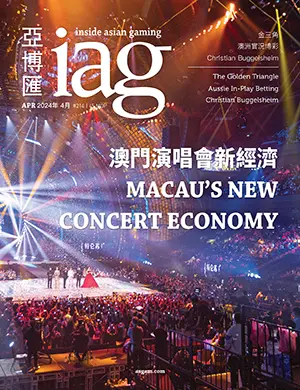The cautious optimism recently displayed by Macau’s business and tourism community has been replaced by one of resignation as COVID-19 outbreaks in Hong Kong and mainland China suggest it will be some time yet before visitors return in force.
As recently as November of 2021, there was a certain degree of optimism that much of the world had turned the corner on the pandemic. Macau enjoyed a modest increase in tourism volume during the recent New Year’s holiday, and while visitation remained far below pre-pandemic levels, it was a welcome sign to see hotels full and people enjoying themselves in the city’s casinos.

Hong Kong was the first region to experience a surge. Despite utilizing similar measures as adjacent provinces, Hong Kong experienced an explosive growth in infections in February, and the virus continues to wreak havoc. Hospitals are at capacity, emergency quarantine facilities were hastily constructed to accommodate infected citizens, and until recently the city’s health authorities had been considering a city-wide lockdown along with a massive testing program to bring the virus under control. Panic buying has stripped bare the city’s supermarket shelves.

Adjacent cities have not been spared Omicron’s wrath. By mid-March, Shenzhen, a city of over 17 million people that sits on the Pearl River Delta near Macau and Hong Kong, went under lockdown. Factories closed, subways and buses stopped running, and residents were ordered to stay home. Dongguan, another major city adjacent to Shenzhen, imposed a similar lockdown.
So far, Macau has been spared from the recent surge experienced in nearby cities, although its proximity to Shenzhen and Dongguan leaves its citizens vulnerable, particularly if an asymptomatic visitor with a recent negative test crosses over into the SAR from Guangdong province. In anticipation of such a scenario, Macau health authorities maintain a quarantine for all visitors to Macau, other than those from mainland China, of 14 days followed by seven days self-health management.

For people living in other parts of the world, it is difficult to appreciate how seriously the PRC and the special administrative regions of Macau and Hong Kong have treated the pandemic. While each individual province within the PRC and the two SARs have their own regulations, they have one thing in common – their health protocols are strict, and they maintain a zero-COVID transmission policy. For instance, Macau residents returning from a foreign country must first present proof of a negative COVID test upon departure for their flight to Macau. Upon arrival into Macau, each passenger is tested once again. Then, every returning resident is ushered to a quarantine hotel. At last check, the quarantine period was 14 days plus seven days of “self-health management”. For those returning residents who have the misfortune of testing positive upon arrival, they are taken to a hospital, where they are checked in, monitored and tested for a variety of possible medical conditions until medical authorities are convinced they are virus free and healthy.
Every resident is required to have a dedicated app on their mobile device whenever venturing out in public. The app stores vaccine status and recent test results. It also monitors human interactions. In the course of a day, a person would have to scan their mobile app when entering a public building, shopping mall, apartment complex or place of business. With each scan, one of three color codes are displayed: green, yellow or red. A green code allows the resident to proceed and move freely. A yellow code indicates that the person has been in an area where an infection may have been detected. A red code indicates that the person may have come into contact with someone who tested positive, causing the swift intervention of health authorities. That intervention may lead to an immediate quarantine.
Compatible systems are used in the PRC and Hong Kong. Despite adherence to the zero-COVID policy and technologies that allow health authorities to act quickly to contain the virus’ spread, Omicron has managed to propagate rapidly. While the surge is expected to eventually subside, it has shaken many people’s faith that the virus will be brought under control anytime soon.

























